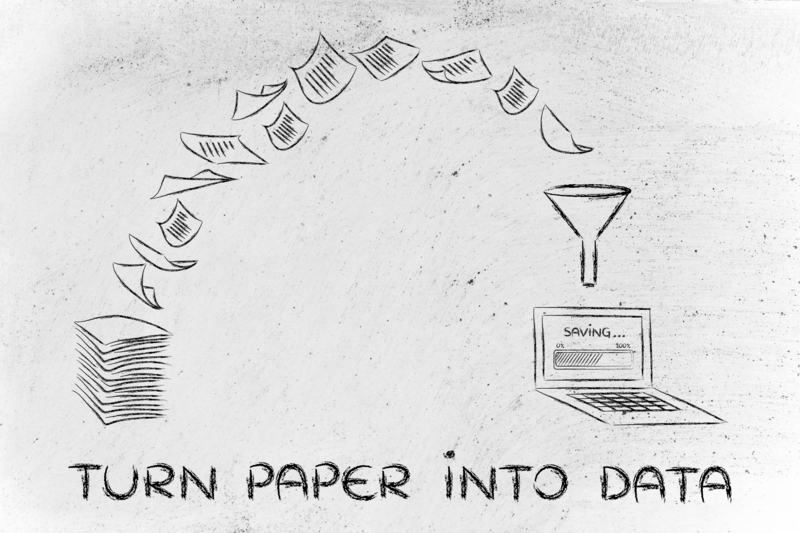Affordable Bulky Waste Solutions for Smart Savers
Dealing with large, unwanted items can be challenging, especially when aiming to be budget-conscious and eco-friendly. Whether you're a homeowner decluttering, a renter moving out, or a business needing a furniture refresh, discovering affordable bulky waste solutions is vital for both your wallet and the planet. In this comprehensive guide, we'll explore a variety of economical disposal strategies, clever tips for smart savers, and resources to handle bulky waste responsibly.

Understanding Bulky Waste
Before diving into smart savings, it's important to clarify what qualifies as bulky waste. Typically, bulky waste refers to items too large or heavy to fit in standard bins. Examples include:
- Sofas, couches, and armchairs
- Large tables, wardrobes, and cabinetry
- Mattresses and bed frames
- Refrigerators, washing machines, and other large appliances
- Old carpets and large rugs
- Garden waste like sizable branches or fencing
Affordable bulky item disposal is crucial for households and businesses striving to save money without compromising on efficiency or environmental ethics.
Why Choose Cost-Effective Bulky Waste Disposal?
Choosing cost-effective bulky waste solutions doesn't just help you save money; it also encourages more people to dispose of their waste properly, reducing illegal dumping and lessening landfill strain. Here are some reasons to opt for affordable clearance methods:
- Budget-friendly: Spend less on removal fees and avoid fines from improper disposal.
- Environmental responsibility: Many solutions prioritize reuse and recycling, decreasing environmental harm.
- Convenience: Many services provide quick pickups at times that suit you.
- Legal compliance: Proper disposal ensures you meet local regulations and avoid penalties.
Smart Strategies for Managing Bulky Waste Affordably
1. Reuse and Repurpose
The greenest solution is always to reuse. Before you seek disposal, ask yourself whether your bulky items could find a second life:
- Sell: Marketplaces such as Craigslist, Facebook Marketplace, or local classifieds can connect you with buyers looking for used furniture, appliances, or materials. Sometimes, letting go of bulky waste can earn you money.
- Donate: Many charities and thrift stores accept functional items. Organizations like Habitat for Humanity, The Salvation Army, or local shelters might even arrange free pickups for large donations.
- Repurpose: With a bit of creativity, furniture can be upcycled, appliances can become quirky outdoor planters, or wood from old desks can be transformed into bookshelves.
Tip: Offering your unwanted items for free via online community boards or "Freecycle" groups can save you time and hauling costs.
2. Take Advantage of Local Authority Bulky Waste Collection
Your local council may provide affordable bulky waste removal services. These programs are typically designed for household use and charge low or even no fees for collection of large items:
- Check eligibility: Some areas offer a number of free collections each year, especially for seniors or low-income households.
- Understand the terms: There may be limits on the number of items and the types accepted. Booking in advance is sometimes necessary.
- Neighborhood collections: Watch for scheduled "large item collection days" where the community can set out items for free pickup.
Remember, not all waste is accepted by councils (e.g., construction debris or hazardous waste). Always review your local policy for a smart and affordable bulky waste solution.
3. Utilize Private Bulky Waste Disposal Companies
While private pickups may cost more than municipal services, they bring distinct advantages for smart savers who compare options:
- Shop around: Get multiple quotes and inquire about pricing per item, load, or weight. Some companies may offer discounts for multiple items.
- Eco credentials: Choose firms with strong recycling or donation partnerships.
- Group pickups: Organize a joint collection with neighbors to split the costs of a bulky item pick up service.
- Flexibility: Most companies offer next-day or even same-day service for urgent needs.
4. Visit Your Local Household Waste Recycling Centre (HWRC)
If you have access to a suitable vehicle and can handle moderate heavy lifting, most communities operate recycling centers that accept bulky waste for free or for a very low fee.
- Sort carefully: Separate timber, metal, appliances, and textiles for more efficient processing.
- Be prepared: Some centers may require proof of residency, advance booking, or limit the number of visits per year.
- Sustainable outcomes: Recycling centers divert a significant portion of bulk materials from landfill into reuse, recycling, or energy recovery.
5. Rent Skip Bins or Grab Bags for Large Loads
For major declutters, renovation projects, or garden clearances, hiring a skip (or using a "grab bag") offers a bulk, cost-efficient disposal method:
- Choose the right size: Avoid overpaying for space you don't need, but ensure the skip is large enough to fit all your waste to avoid additional pickups.
- Compare skip providers: Seek out off-peak deals, or share with neighbors for shared savings.
- Be aware of restrictions: Items like electronics or tires are often excluded from regular skips, so double-check before loading.
Affordable Bulky Waste Solutions: Bonus Tips for Extra Savings
- Plan ahead: Consolidate bulky waste to minimize collection instances or trips to a facility.
- Disassemble items: Breaking down furniture can save space, sometimes reducing disposal costs.
- Ask about community reuse events: Some towns host "giveaway days" or swap events, where residents exchange or take unclaimed bulk items for free.
- Negotiate bulk rates: If handling clearance for multiple units or neighboring homes, inquire about volume discounts from private firms.
- Leverage local social media groups: Post large items for free or trade online to find takers fast.
What Not to Do: Avoiding Common Mistakes in Bulky Waste Disposal
Saving money should never mean risking fines or environmental harm. Smart savers never:
- Fly-tip: Illegal dumping is subject to heavy penalties and harms the community.
- Use unlicensed waste carriers: Always seek companies with proper permits and check references.
- Ignore hazardous waste rules: Fridges, electronics, and some furniture require special disposal due to chemicals or heavy metals.
- Mix recyclables with landfill waste: Always separate metals, wood, and textiles to ensure proper recycling.
Eco-Friendly Approaches for Budget-Conscious Savers
Modern affordable bulky waste collection doesn't just mean low-cost--it's about balancing value with ecological impact. Here are environmentally-responsible, cost-cutting tactics:
- Community repair cafes: Bring your items for a fix rather than a landfill trip--volunteers help repair furniture or appliances for free or a tiny donation.
- Secondhand networks: Connect with local businesses who purchase scrap or upcycle abandoned furniture and appliances.
- Manufacturer take-back: Some large retailers and manufacturers offer free or discounted removal of old products with a new purchase--especially for white goods and electronics.
Case Studies: Real Savings on Bulky Waste Disposal
Case Study 1: Group Collection for Neighborhood Savings
A group of six neighbors, each needing to dispose of at least one large item (e.g., bed, dresser, sofa), contacted a local waste collection provider. By combining their "bulky pickups" into a single truckload, they negotiated a 40% discount over individual bookings. Each saved both time and money, preventing multiple trips and lowering vehicle emissions.
Case Study 2: DIY Drop-Off to Recycling Center
Jane remodeled her living room and needed to dispose of two chairs and a coffee table. With a friend's help and their hatchback, they visited the local HWRC. The disposal was free, and staff directed them to the correct bins for wood and mixed materials--nothing went to landfill, and the process took less than an hour.
Case Study 3: Online Marketplace to Maximize Value
Instead of paying for removal of an unwanted washer and couch, Michael posted both on a local "buy and sell" platform. Both items were collected for free by new owners seeking low-cost furnishings--saving Michael removal fees and helping others furnish affordably.

What to Look for in an Affordable Bulky Waste Company
When evaluating services, keep these questions in mind for optimal savings and service:
- Transparent pricing: Do they offer clear rates with no hidden fees?
- Licensed and insured: Are they registered with your local authorities?
- Eco credentials: Can they prove how much they recycle or divert from landfill?
- Responsive service: Are bookings seamless and are customer reviews positive?
- Flexible booking: Are urgent and advance options available at no extra cost?
Conclusion: Smart, Sustainable Savings for Bulky Waste
Managing large waste items doesn't have to be expensive or stressful. By leveraging a mix of affordable bulky waste solutions, such as donation, resale, local authority collection, and mindful disposal at recycling centers, smart savers can keep costs low, stay legal, and protect the environment. Always seek out the most sustainable and budget-friendly option for each unique item, and remember--your unwanted furniture or appliance could be someone else's treasure. Choose wisely and save smartly!
Key Takeaways
- Reuse, donate, or resell whenever possible to avoid disposal costs.
- Compare local and private waste collection options for the best bulk rates.
- Group pickups, DIY drop-offs, and skip rentals are top strategies for cheap bulky waste clearance.
- Never compromise on environmental standards--smart savers are also planet protectors!
Ready for a clutter-free, budget-friendly future? Take action today using these smart, eco-conscious bulky waste removal tips!
